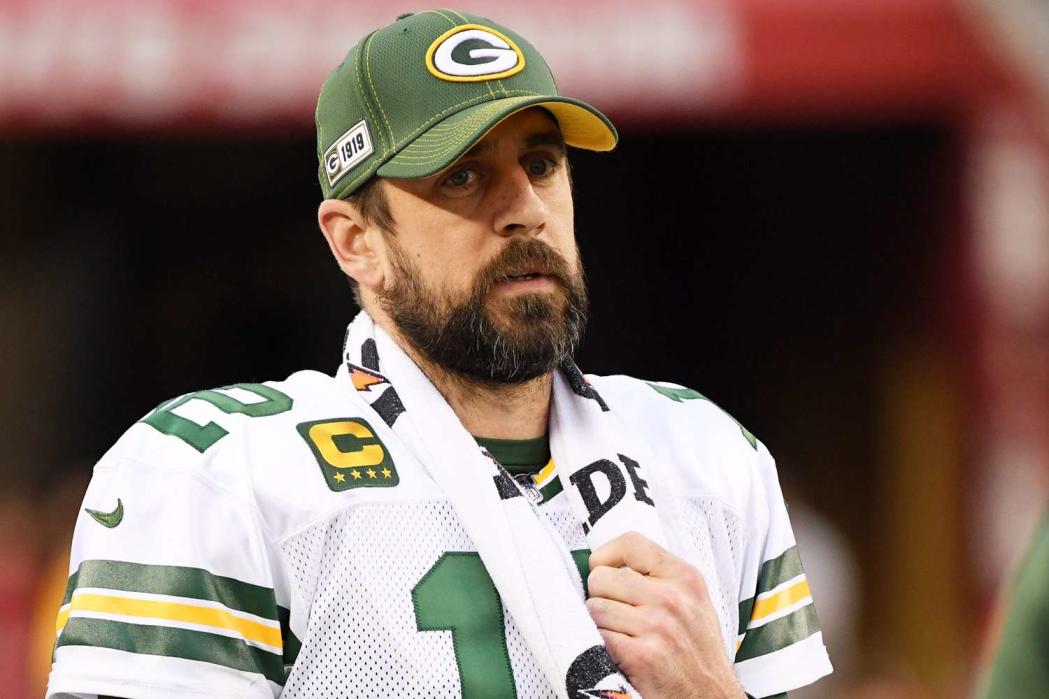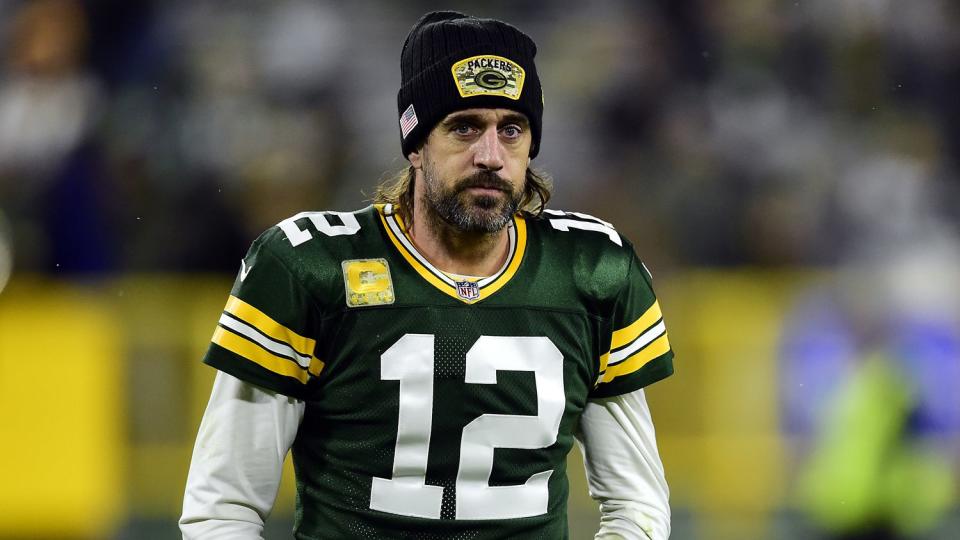Aaron Rodgers Admits He Misled Media with 'Immunized' Remark, Addresses Fall Out

- Oops!Something went wrong.Please try again later.
- Oops!Something went wrong.Please try again later.
Harry How/Getty Aaron Rodgers
Aaron Rodgers is opening up about the tale behind his COVID-19 vaccination controversy.
During his appearance on The Joe Rogan Experience podcast, which aired on Saturday, the NFL superstar QB confessed he misled the media with his immunization remark last year.
In November, Rodgers, 38, received public criticism when he tested positive for COVID-19 after previously stating that he had been "immunized" ahead of the football season in August. Two days later, he revealed that he did not get vaccinated, claiming that he was allergic to an ingredient in the mRNA (Pfizer and Moderna) vaccines. He also said he did not want to get the Johnson & Johnson vaccine because he "had heard of multiple people who had adverse events around getting the J&J."

Patrick McDermott/Getty Images Aaron Rodgers
RELATED: Aaron Rodgers Speaks Out After His Recent COVID-19 Vaccine Claims: 'I'm an Athlete, Not an Activist'
The Green Bay Packers quarterback said then that, instead, he was undergoing his own "immunization protocol," which involved taking ivermectin, a drug used foremost to treat or prevent parasites in animals. The FDA has not authorized or approved the drug for use in treating or preventing COVID-19.
Speaking to podcast host Joe Rogan, Rodgers discussed the situation, saying, "I'd been ready the entire time for this question and had thought about how I wanted to answer it. And I had come to the conclusion I'm going to say, 'I've been immunized.' And if there's a follow-up, then talk about my process."
"But, [I] thought there's a possibility that I say 'I'm immunized,' maybe they understand what that means, maybe they don't. Maybe they follow up. They didn't follow up," he explained. "So then I go the season [with] them thinking, some of them, that I was vaccinated."
Never miss a story — sign up for PEOPLE's free daily newsletter to stay up-to-date on the best of what PEOPLE has to offer, from juicy celebrity news to compelling human interest stories.
Rodgers continued, "The only follow-up they asked was basically asking me to rip on my teammates. . . . But I knew at some point if I contracted COVID or if word got out, because it's the NFL and there's leaks everywhere, it was possible I'd have to answer the questions."
"And then, sure enough, I contract COVID in the beginning of November, end of October. And that's when the s--- storm hit, because now I'm a liar, I'm endangering the community, my teammates, all these people," he said. "And the attempted takedown of me and, you know, my word and my integrity began. So that was difficult."
Earlier this year, Rodgers criticized how President Joe Biden's administration has approached vaccinations in an interview with ESPN.
RELATED: Aaron Rodgers Confirms He Is Unvaccinated, Says He 'Didn't Lie' When He Said He Was 'Immunized'
"When the president of the United States says, 'This is a pandemic of the unvaccinated,' it's because him and his constituents, which, I don't know how there are any if you watch any of his attempts at public speaking, but I guess he got 81 million votes," Rodgers told ESPN of a phrase Biden, 79, has previously used.
"But when you say stuff like that, and then you have the [Centers for Disease Control and Prevention], which — how do you even trust them? — but then they come out and talk about 75% of the COVID deaths have at least four comorbidities. And you still have this fake White House set saying that this is the pandemic of the unvaccinated, that's not helping the conversation," he added.
The statistic Rodgers referenced comes from a CDC study of 1.2 million fully vaccinated individuals conducted between December 2020 and October 2021. During the study, just 36 people suffered COVID-19-related deaths, 28 of which (or about 78%) had at least four comorbidities.
As information about the coronavirus pandemic rapidly changes, PEOPLE is committed to providing the most recent data in our coverage. Some of the information in this story may have changed after publication. For the latest on COVID-19, readers are encouraged to use online resources from the CDC, WHO and local public health departments.

